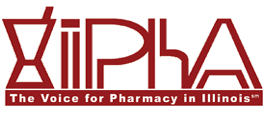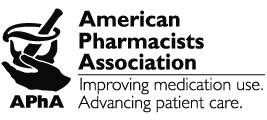Recent Blog Posts
Potential Disciplinary Actions Against Professional Licenses in Illinois
 As a licensed professional in Illinois, it is important to understand the potential disciplinary actions that you may face if you are accused of engaging in unprofessional conduct, failing to meet the standards of your profession, or committing certain types of crimes. Whether you are a doctor, nurse, pharmacist, psychologist, dentist, chiropractor, real estate agent, lawyer, accountant, or any other licensed professional, the Illinois Department of Financial and Professional Regulation (IDFPR) has the authority to investigate and take disciplinary action if you are found to have violated the rules and regulations governing your profession. Depending on the circumstances of your case, multiple types of discipline may be possible.
As a licensed professional in Illinois, it is important to understand the potential disciplinary actions that you may face if you are accused of engaging in unprofessional conduct, failing to meet the standards of your profession, or committing certain types of crimes. Whether you are a doctor, nurse, pharmacist, psychologist, dentist, chiropractor, real estate agent, lawyer, accountant, or any other licensed professional, the Illinois Department of Financial and Professional Regulation (IDFPR) has the authority to investigate and take disciplinary action if you are found to have violated the rules and regulations governing your profession. Depending on the circumstances of your case, multiple types of discipline may be possible.
Will I Lose My Professional License if I Am Convicted of a Crime?
 As a licensed professional in Illinois, it is important to understand the potential consequences you may face following a criminal conviction. In addition to the penalties associated with a conviction, which may include jail time, fines, probation, or restitution, your professional reputation may be affected. To make matters worse, the Illinois Department of Financial and Professional Regulation may take disciplinary action against your professional license. Depending on the type of offense and the circumstances surrounding the crime, a conviction could result in the suspension or revocation of your professional license, or you may face other forms of discipline.
As a licensed professional in Illinois, it is important to understand the potential consequences you may face following a criminal conviction. In addition to the penalties associated with a conviction, which may include jail time, fines, probation, or restitution, your professional reputation may be affected. To make matters worse, the Illinois Department of Financial and Professional Regulation may take disciplinary action against your professional license. Depending on the type of offense and the circumstances surrounding the crime, a conviction could result in the suspension or revocation of your professional license, or you may face other forms of discipline.
Investigations by Professional Licensing Boards
Each profession in Illinois has its own licensing board or agency that oversees and regulates the licensing process. These boards have the authority to investigate complaints against license holders and take disciplinary action, including license suspension or revocation. Criminal convictions may trigger an investigation, and a board may review a case to determine whether the offense indicates that your ability to practice your profession has been affected.
How Can Psychologists Defend Against Disciplinary Action in Illinois?
 When facing disciplinary action as a psychologist in Illinois, it is crucial to understand your rights and take the necessary steps to defend your license. Disciplinary actions can have severe consequences, including the suspension or revocation of your license, which can effectively end your career. In these cases, it is essential to consult with a knowledgeable and experienced attorney who can defend against disciplinary action.
When facing disciplinary action as a psychologist in Illinois, it is crucial to understand your rights and take the necessary steps to defend your license. Disciplinary actions can have severe consequences, including the suspension or revocation of your license, which can effectively end your career. In these cases, it is essential to consult with a knowledgeable and experienced attorney who can defend against disciplinary action.
Understanding Disciplinary Actions for Psychologists
The Illinois Department of Financial and Professional Regulation (IDFPR) is responsible for regulating and disciplining licensed professionals, including psychologists. Disciplinary actions can arise from various issues, such as professional misconduct, substance abuse, criminal convictions, fraudulent billing practices, or breaches of patient confidentiality.
What Will Happen if My DEA Registration Is Suspended or Revoked?
 The Drug Enforcement Administration (DEA) is responsible for regulating the use of controlled substances in the United States. Doctors, pharmacists, and other medical professionals who work with controlled substances will be required to maintain a DEA registration. This registration is crucial, as it will allow a professional to prescribe, administer, or dispense certain medications to patients. Unfortunately, there are some situations where a medical provider may be accused of violating DEA regulations or other laws related to controlled substances, and this could lead to a suspension or revocation of a DEA registration. It is important for medical professionals to understand the potential consequences they may face in these situations and how they can defend against the loss of their controlled substance regulation.
The Drug Enforcement Administration (DEA) is responsible for regulating the use of controlled substances in the United States. Doctors, pharmacists, and other medical professionals who work with controlled substances will be required to maintain a DEA registration. This registration is crucial, as it will allow a professional to prescribe, administer, or dispense certain medications to patients. Unfortunately, there are some situations where a medical provider may be accused of violating DEA regulations or other laws related to controlled substances, and this could lead to a suspension or revocation of a DEA registration. It is important for medical professionals to understand the potential consequences they may face in these situations and how they can defend against the loss of their controlled substance regulation.
What Topics Will Be Covered in MPJE Remediation for Pharmacy Students?
 Pharmacy students are required to complete vigorous study and extensive training during their academic journey toward becoming licensed pharmacists. One of the most significant hurdles to cross is passing the Multistate Pharmacy Jurisprudence Exam (MPJE). This examination evaluates a student's knowledge of the legal aspects of pharmacy practice, as well as the proper procedures that must be followed when dispensing controlled substances and other drugs. Unfortunately, failing the MPJE can be a daunting setback for pharmacy students. If a person fails either the MPJE or the North American Pharmacist Licensure Examination (NAPLEX) a total of three times, they will be required to complete MPJE remediation before they will be allowed to retake the exam. By understanding the topics that will be covered during remediation, students can be sure they will be prepared to complete classes or tutoring and be ready to pass their exams.
Pharmacy students are required to complete vigorous study and extensive training during their academic journey toward becoming licensed pharmacists. One of the most significant hurdles to cross is passing the Multistate Pharmacy Jurisprudence Exam (MPJE). This examination evaluates a student's knowledge of the legal aspects of pharmacy practice, as well as the proper procedures that must be followed when dispensing controlled substances and other drugs. Unfortunately, failing the MPJE can be a daunting setback for pharmacy students. If a person fails either the MPJE or the North American Pharmacist Licensure Examination (NAPLEX) a total of three times, they will be required to complete MPJE remediation before they will be allowed to retake the exam. By understanding the topics that will be covered during remediation, students can be sure they will be prepared to complete classes or tutoring and be ready to pass their exams.
Training Requirements for a Medical Marijuana Dispensary License
 Since the legalization of marijuana in Illinois, numerous businesses have opened that are involved in the cultivation, distribution, and sale of cannabis products, including medical marijuana. While this has created opportunities for many business owners, the new laws also involve a number of strict requirements that must be followed. One issue that owners of medical marijuana dispensaries may encounter involves the requirements for providing training for employees, managers, and agents of an organization. Proper training is not only essential for meeting licensing requirements, but it also plays a crucial role in maintaining a safe and responsible business. Dispensary owners will need to understand the requirements of Responsible Vendor Program training for employees, as well as the additional training requirements that will apply for Principal Officers and agents.
Since the legalization of marijuana in Illinois, numerous businesses have opened that are involved in the cultivation, distribution, and sale of cannabis products, including medical marijuana. While this has created opportunities for many business owners, the new laws also involve a number of strict requirements that must be followed. One issue that owners of medical marijuana dispensaries may encounter involves the requirements for providing training for employees, managers, and agents of an organization. Proper training is not only essential for meeting licensing requirements, but it also plays a crucial role in maintaining a safe and responsible business. Dispensary owners will need to understand the requirements of Responsible Vendor Program training for employees, as well as the additional training requirements that will apply for Principal Officers and agents.
Can Allegations of Insurance Fraud Lead to Medical License Discipline?
 Insurance fraud is a serious issue in the healthcare industry, and allegations of fraudulent activity can have significant consequences for medical professionals. In addition to facing legal penalties, physicians who are found guilty of insurance fraud may face disciplinary action from the Illinois Medical Board. They could also lose their provider status with Medicare/Medicaid, limiting their ability to provide services to certain patients, and multiple other aspects of their practice could be affected. By understanding the forms of insurance fraud that could lead to medical license discipline, a doctor and other medical providers can respond to allegations that they have committed fraud and determine how to avoid the loss of their license.
Insurance fraud is a serious issue in the healthcare industry, and allegations of fraudulent activity can have significant consequences for medical professionals. In addition to facing legal penalties, physicians who are found guilty of insurance fraud may face disciplinary action from the Illinois Medical Board. They could also lose their provider status with Medicare/Medicaid, limiting their ability to provide services to certain patients, and multiple other aspects of their practice could be affected. By understanding the forms of insurance fraud that could lead to medical license discipline, a doctor and other medical providers can respond to allegations that they have committed fraud and determine how to avoid the loss of their license.
Common Forms of Insurance Fraud
Some physicians or other medical providers may be investigated for healthcare fraud by agencies such as the Department of Health and Human Services (HHS) or the state or federal Office of the Inspector General. An investigation by these agencies or other officials can have multiple types of consequences, and in addition to issues that may affect their license and their career, a person could potentially face criminal charges for fraud at the state or federal level.
UPDATE: Requirements of a Nurse Practitioner in Illinois
Originally published: August 25, 2021 -- Update: May 16, 2023
Update: In addition to the issues described below, nurse practitioners may need to be aware of how they may be affected by issues related to prescribing medications for patients. While nurse practitioners may have prescriptive authority, they will need to meet certain requirements. In some cases, nurse practitioners who prescribe controlled substances may face investigations by the Drug Enforcement Administration (DEA). Failure to follow the correct procedures could lead to a loss of a nurse practitioner's controlled substance registration, limiting their ability to prescribe drugs and also impacting their nursing license and other aspects of their career.
3 Examples of Sexual Misconduct That Can Affect a Medical License
 Medical professionals are responsible for providing an expected quality of care for their patients. They must maintain a high level of professionalism in their practice, and that includes upholding ethical standards and following a code of conduct. Unfortunately, there are many instances of sexual misconduct that have been reported among medical professionals. Complaints of misconduct made by patients or other parties may lead the Illinois Medical Board to investigate a medical professional. The board may take disciplinary action such as suspending a person's medical license if it believes that these measures are appropriate. By understanding what constitutes sexual misconduct, doctors, nurses, or other providers can make sure they are avoiding this type of behavior, and they can take the correct steps to respond to complaints or investigations.
Medical professionals are responsible for providing an expected quality of care for their patients. They must maintain a high level of professionalism in their practice, and that includes upholding ethical standards and following a code of conduct. Unfortunately, there are many instances of sexual misconduct that have been reported among medical professionals. Complaints of misconduct made by patients or other parties may lead the Illinois Medical Board to investigate a medical professional. The board may take disciplinary action such as suspending a person's medical license if it believes that these measures are appropriate. By understanding what constitutes sexual misconduct, doctors, nurses, or other providers can make sure they are avoiding this type of behavior, and they can take the correct steps to respond to complaints or investigations.
Sexual Assault and Unwanted Sexual Advances
When Can a Medical Provider Be Accused of Drug Diversion?
 Healthcare providers have access to a wide range of medications for the purpose of treating patients. However, this access comes with the added responsibility of ensuring that drugs are not misused or abused. Doctors, nurses, pharmacists, and other medical professionals play a vital role in ensuring that controlled substances are prescribed and dispensed correctly. However, there are some situations where providers may be accused of allowing prescription drugs to be used for non-medical purposes. By understanding the situations where a person could potentially be accused of drug diversion, a provider can take steps to defend themselves and avoid the loss of a DEA registration or discipline to their medical license.
Healthcare providers have access to a wide range of medications for the purpose of treating patients. However, this access comes with the added responsibility of ensuring that drugs are not misused or abused. Doctors, nurses, pharmacists, and other medical professionals play a vital role in ensuring that controlled substances are prescribed and dispensed correctly. However, there are some situations where providers may be accused of allowing prescription drugs to be used for non-medical purposes. By understanding the situations where a person could potentially be accused of drug diversion, a provider can take steps to defend themselves and avoid the loss of a DEA registration or discipline to their medical license.















